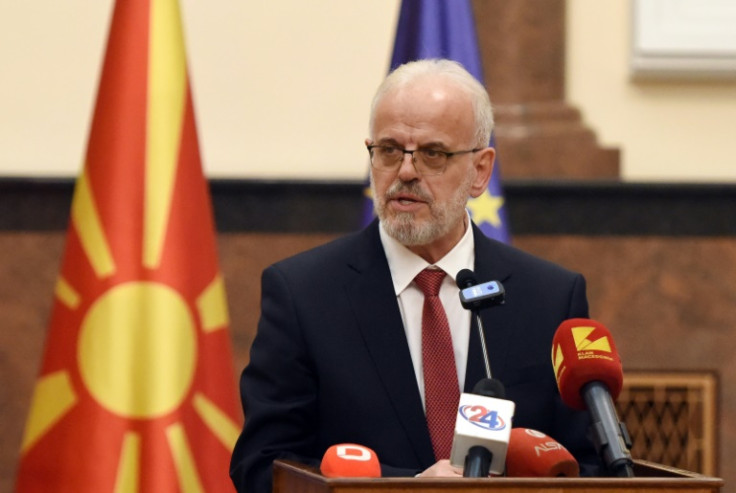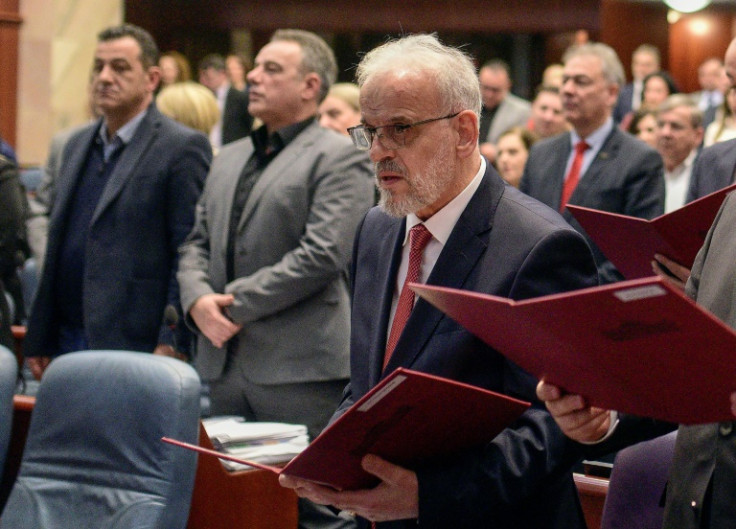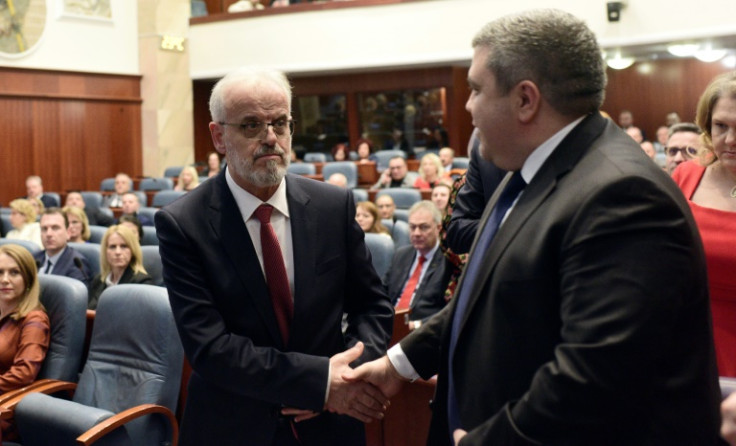From Insurgent To Premier, N Macedonia's PM Bridges Ethnic Divide

Former guerrilla commander Talat Xhaferi became the first ethnic Albanian to lead North Macedonia after being elected as caretaker prime minister late last month, highlighting strides in ethnic relations.
Around a quarter of North Macedonia's 1.8 million inhabitants are ethnic Albanians.
But ever since the Balkan country's 1991 declaration of independence from the former Yugoslavia, tensions persisted between the majority Macedonian population and the ethnic Albanian minority.
In January Xhaferi was sworn in without major protests -- a sea change from the demonstrations and complaints which marred his career as defence minister in 2013 and parliamentary speaker in 2017.
"I will advocate for ethnic balance and harmony between the communities," the bespectacled 61-year-old told MPs after being elected, as he spoke in both Macedonian and Albanian.
Xhaferi served as an Albanian insurgent commander when bloody conflict erupted due to ongoing discrimination, a decade after the country's independence.
He abandoned his post in North Macedonia's security forces to take up arms, having previously served in the Yugoslav army.
Thousands of rebel fighters, including Xhaferi, were later amnestied in accordance with a peace deal in 2001.
His ascent to the prime minister's office represents an unlikely rise for the politician born in the tiny village of Forino in what was then the Yugoslav Republic of Macedonia.
The premier is due to lead the government for 100 days until the general elections scheduled for May 8.
The views of analysts and communities, however, remain mixed.
For political analyst Sefer Tahiri, Xhaferi's election is a largely "symbolic political act" aiming to promote "good inter-ethnic relations".
"It will increase Albanian loyalty to the state, which remains minimal due to systematic discriminatory and undemocratic practices regarding their constitutional status and rights," Tahiri added.
North Macedonia's diversity has forced the country to work together.
For the past two decades, government after government has relied on fractious coalitions that have included ethnic minority parties to form a majority.
Others remain sceptical as they wait to see how his brief tenure will play out.
"It is important for the prime minister to work for the good of Macedonia, no matter who he is," said Fejzulai Nedzip, 77, a shop owner in the ethnically mixed Old Bazaar of Skopje.
Despite diverse coalitions, communities are often segregated along ethnic lines in reality.
Mixed marriages between ethnic Albanians and Macedonians remain rare with religious and linguistic differences creating further barriers.
Communal violence is rare but cracks do persist.
The European Alliance for Changes -- a coalition of three opposition Albanian parties -- panned Xhaferi's election as a "self-praise" ceremony.
"On the day of his election in a banal ceremony, we still have children in North Macedonia who are not allowed to learn in their mother tongue," the EAC said.
Xhaferi, however, has largely dismissed the criticism.
"I don't think I have done anything special," he told reporters.
"I have just fulfilled the assignment according to the obligations set by the law."


© Copyright AFP {{Year}}. All rights reserved.




















